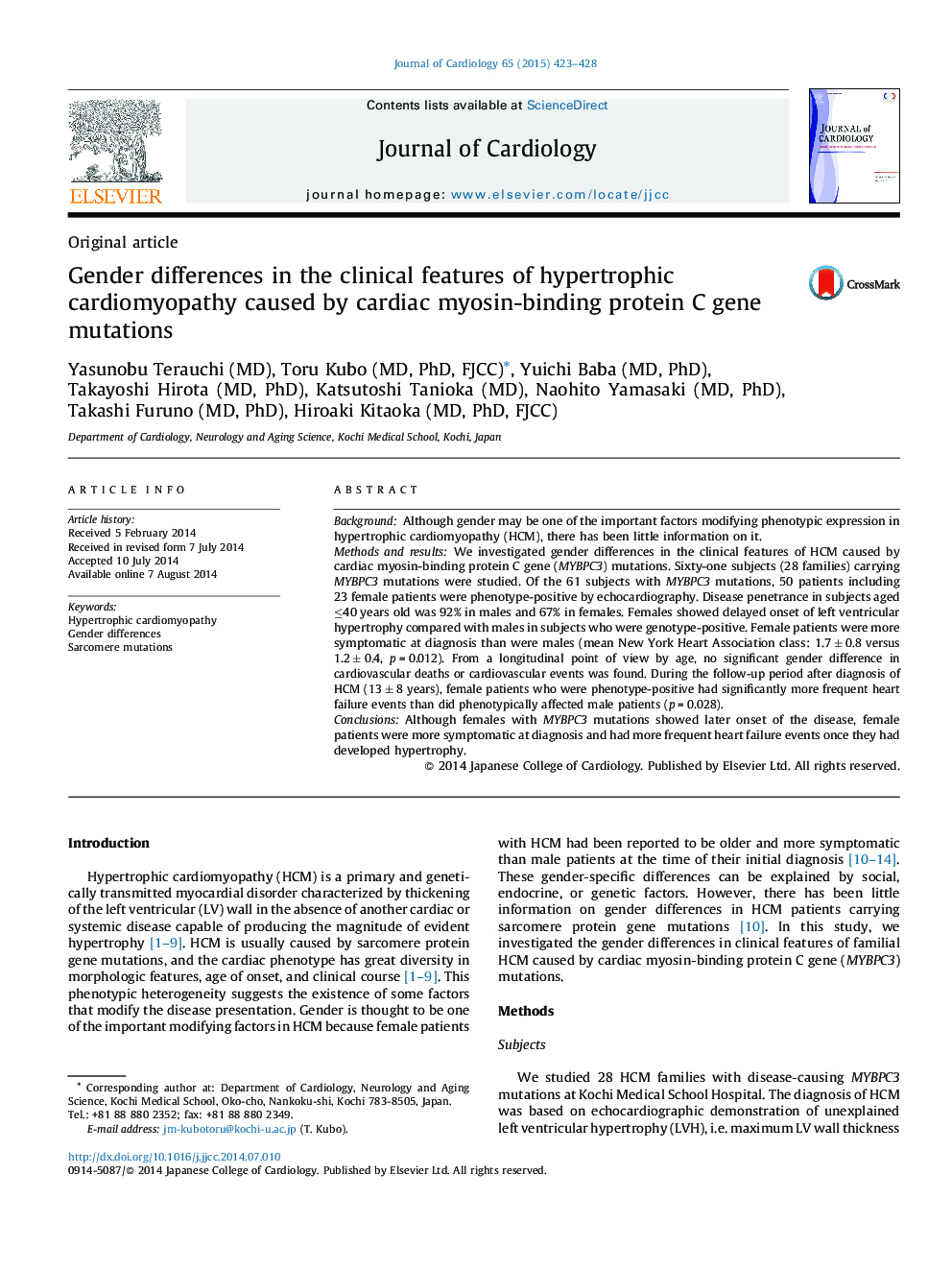| Article ID | Journal | Published Year | Pages | File Type |
|---|---|---|---|---|
| 2962979 | Journal of Cardiology | 2015 | 6 Pages |
BackgroundAlthough gender may be one of the important factors modifying phenotypic expression in hypertrophic cardiomyopathy (HCM), there has been little information on it.Methods and resultsWe investigated gender differences in the clinical features of HCM caused by cardiac myosin-binding protein C gene (MYBPC3) mutations. Sixty-one subjects (28 families) carrying MYBPC3 mutations were studied. Of the 61 subjects with MYBPC3 mutations, 50 patients including 23 female patients were phenotype-positive by echocardiography. Disease penetrance in subjects aged ≤40 years old was 92% in males and 67% in females. Females showed delayed onset of left ventricular hypertrophy compared with males in subjects who were genotype-positive. Female patients were more symptomatic at diagnosis than were males (mean New York Heart Association class: 1.7 ± 0.8 versus 1.2 ± 0.4, p = 0.012). From a longitudinal point of view by age, no significant gender difference in cardiovascular deaths or cardiovascular events was found. During the follow-up period after diagnosis of HCM (13 ± 8 years), female patients who were phenotype-positive had significantly more frequent heart failure events than did phenotypically affected male patients (p = 0.028).ConclusionsAlthough females with MYBPC3 mutations showed later onset of the disease, female patients were more symptomatic at diagnosis and had more frequent heart failure events once they had developed hypertrophy.
